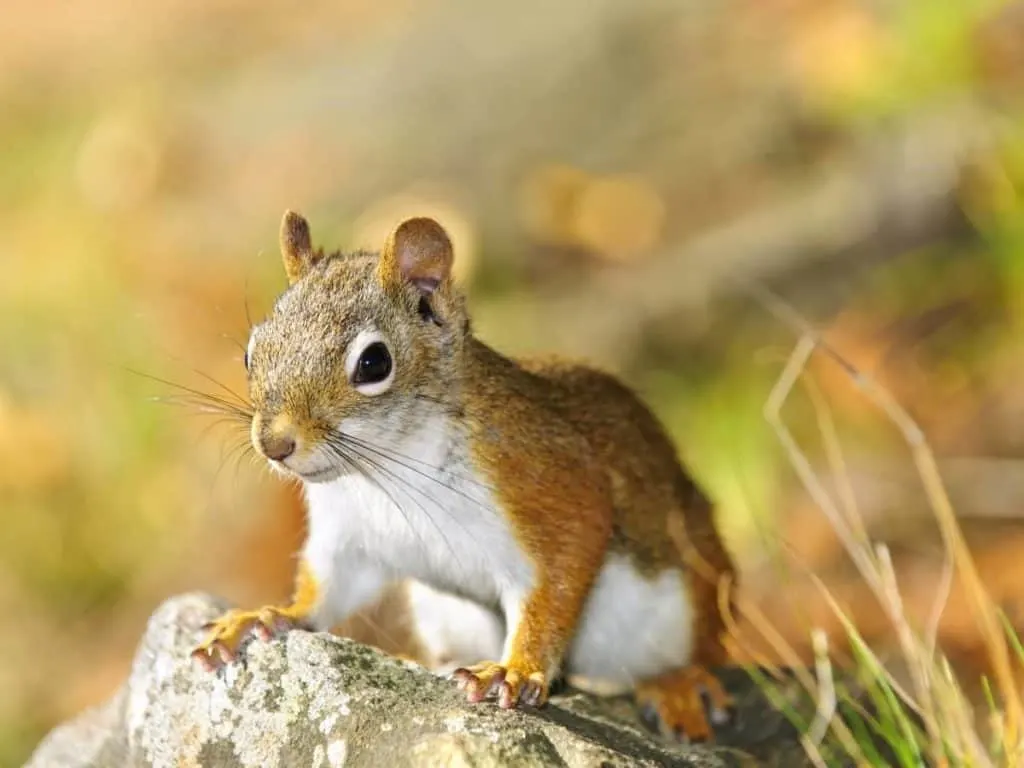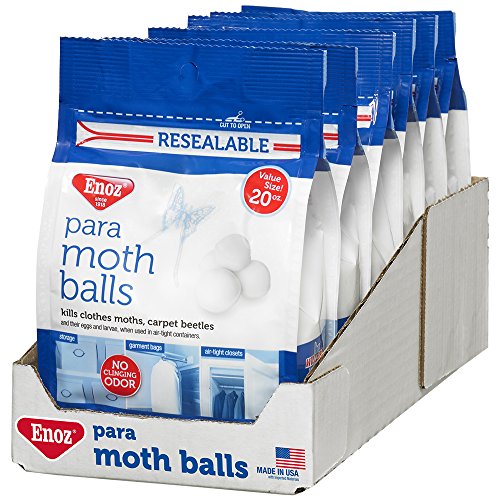Squirrels may seem like endearing animals from a distance, but not when they are digging up plants in your garden. These rodents can cause serious damage to flowers pots in their need for burying food under the soil.
Fortunately, there are several solutions to resolve this issue and prevent the critters from destroying your yard or garden.
Will mothballs keep squirrels out of flower pots and plants?
Scattering a few mothballs around plants and flower pots in the garden is a common and highly effective way to fend off squirrels. The rodents are put off by the deterrent’s pungent scent and hence keep their distance from areas where they detect this foul scent.

Mothballs, along with white pepper and garlic, are some deterrents that squirrels strongly dislike due to their potent stenches. As squirrels have a strong sense of smell, these scents irritate them significantly more than they do to humans.
This is why it is also important not to overpower the garden with the stench of mothballs, as it can be bothersome to some people as well.
However, mothballs begin to lose their scent very quickly with time. This lowers their effectiveness in repelling squirrels. Hence, it is advised to replace the old mothballs with fresh, new ones every week to ensure that the smell does not fade.
Mothballs also contain pesticides that are useful in terms of keeping pests away, but harmful for plants when used excessively. Thus, they should be used sparingly to prevent the chemicals from seeping into the soil and causing damage to the plants.
How to use mothballs to get rid of squirrels?
To keep squirrels and other rodents away from flower beds or plants, simply scatter a couple of mothballs around areas in the garden where the critters frequently visit.
As the smell can irritate humans, as well as squirrels, it is advised to refrain from using too many mothballs. Using more than necessary can also be detrimental to the plants themselves, as the chemicals in mothballs may seep into the soil and harm them.
After placing them around plants, make sure to replace the old mothballs with new ones as their smell begins to fade after a week.
Do these keep squirrels away from plants and flowerpots?
There can be multiple elements that you can use to deter squirrels away from your garden plants. Take look at the list below to find more about the usefulness of the elements to deter the squirrels away.
Coffee grounds:
Coffee grounds are another effective way to repel squirrels from plants. However, as their smell is not as pungent as mothballs, they must be scattered on pots every day.
Cayenne powder:
Cayenne pepper flakes are another helpful repellent for squirrels. Scooping a small amount of Vaseline into a bowl, add the cayenne powder to create a mixture.
Smearing this element around the stems of plants will keep critters from attempting to dig up the surrounding soil.
Ammonia:
Ammonia is another commonly used repellent for pests and rodents. Along with discouraging squirrels from coming near the plants, the chemical also aids in plant growth.
To use ammonia safely, it is important to wear gloves while handling it. Taking a folded towel or rag, dip it into the chemical and place it beside the flower pots.
However, despite ammonia being a fertilizer for plants, too much exposure may cause ammonia toxicity.
Vinegar:
The strong stench of undiluted vinegar is yet another safe and effective alternative for repelling squirrels.
It may be sprayed directly onto the surface of flower pots and plants as the solution will not damage them. It is advised to use apple- cider vinegar specifically for this purpose.
As vinegar is not harmful for plants, it may be used as frequently as required.
Cinnamon:
This spice is a convenient way to discourage squirrels from destructing precious plants in your garden.
Simply sprinkle the cinnamon powder directly onto the soil to deter rodents, or create a spray with water and cinnamon powder.
Why do squirrels dig in flower pots?
Squirrels display their digging under flowerpot behavior typically to store their food for later in a safe place away from other squirrels.
When they find acorns or nuts they do not need immediately, these rodents prefer hiding them underground to save for later.
The soil in gardens and flower pots is typically softer and easier to dig through, leading squirrels to target potted plants for this reason.
How do I keep squirrels from digging in my flowerpots?
Stopping the squirrels from digging in your flowerpots is important to keep your plants healthy. There can be multiple ways to do that. Take a look below to know about those ways.
Adding homemade repellents:
Squirrels have an very strong sense of smell which can be used to your advantage. The animals are very easily irritated by a variety of simple organic elements.
These products can generally be found around the household, making it unnecessary to pay for professional help.
If deterrents such as mothballs, ammonia, and cayenne powder are not readily available around you, plenty of other natural elements work just as well.
Squirrels tend to equally dislike the smells of ginger, coffee grounds, onion juice, and peppers. Hence, these elements are convenient and safer substitutions for ammonia and mothballs.
Another commonly available household item is peppermint, one of the most displeasing smells of squirrels. It can be used in the form of peppermint oil or the leaves themselves scattered around.
Planting bulbs that squirrels dislike:
If you are searching for stronger and more permanent methods to ensure that squirrels along with most critters and small rodents stop destroying your potted plants, consider planting natural squirrel repellents.
Daffodils, Alliums, Irises, and Galanthus are all displeasing to squirrels, with plants and refrain from digging the soil around them as well.
Growing at least one of these flowers is another effective and permanent solution to discouraging squirrels from digging up flower beds.
Creating physical barriers:
Squirrels also easily give up attempting to destroy a potted plant if there are fences or boundaries between them.
Barriers such as a layer of rocks placed on the soil make it difficult for the animals to dig through. Hanging objects such as pinwheels or old CD’s also scare away these easily frightened rodents.
Alternatively, installing motion-sensing lights is yet another way to startle and scare off most rodents although it can be slightly more costly.
The most commonly used physical barrier, however, is setting up a fence around the perimeter of the entire garden to prevent squirrels from even entering the area.
The fence must be high enough for the squirrels to find it difficult to climb over.
Additionally, netting or a cage may also be placed over a section of plants as protection.
These barriers may also be in the form of wild roses and vines. The stems of these plants are generally sharp enough to fend off squirrels.
Simply bury a few pieces of these stem sections below 1-2 inches of soil in the pot. Squirrels will dig through a few times and encounter the sharp thorns, discouraging them to repeat this in the future.
Which plants do squirrels eat?
Squirrels typically eat the same majority of plants as us, including fruits, vegetables, berries, and nuts. These animals have long incisor teeth which allow them to nibble on almost everything.
Although their diet generally consists of nuts such as acorns, peanuts, and walnuts- squirrels also enjoy feasting on fruits and leafy vegetables. This is a typical reason for them to sometimes start chewing on potted plants in gardens.
It is also common for them to dig up flower pots to munch on the bulbs and tips of various flowers including tulips, hydrangeas, and certain roses.
However, nuts remain their primary source of energy and they only resort to eating the petals and leaves of plants usually when they’re out of food.
This is why many gardeners find it surprisingly effective to keep a source of nuts separate from the garden to distract squirrels.
What plants do squirrels dislike?
Due to their keen sense of smell, squirrels typically stay away from plants with foul odors or flavors. This includes daffodils, alliums, and irises. All three are poisonous to squirrels and are displeasing to consume.
Geraniums are also easy to grow and are used by many gardeners to repel critters. One of the most popular natural squirrel repellents, however, is the peppermint plant. Though aromatic to humans, the strong flavor of the leaves is foul to squirrels.
Not only do they dislike eating this plant, they generally stay away from the entire area where the pungent-smelling leaves can be found.
Other than those, most hot pepper plants and onion plants are also very off-putting to squirrels.
Final thoughts
In conclusion, mothballs are definitely an effective way to deter squirrels from raiding potted plants. However, as their smell fades within a few days, it is crucial to replace the old ones each week. Excessive usage of mothballs should be avoided as some people can be irritated by them as well.



